Astronomy
-
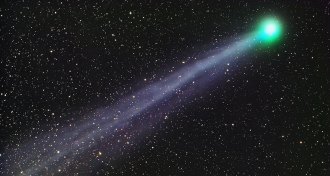 Astronomy
AstronomyComet carries alcohol, sugar
Sugar and alcohol are just two of the ingredients that go into making a comet.
-
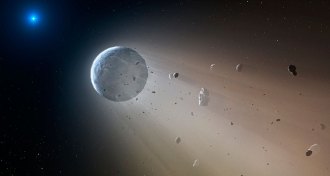 Astronomy
AstronomyWhite dwarf upsets planetary system, consumes evidence
Rocky planets are disintegrating around a white dwarf, the core of a dead star.
-
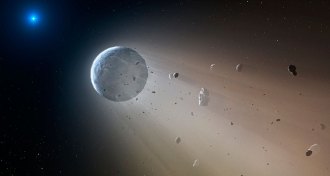 Astronomy
AstronomyWhite dwarf upsets planetary system, consumes evidence
Rocky planets are disintegrating around a white dwarf, the core of a dead star.
-
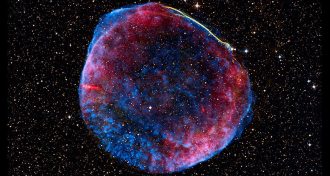 Astronomy
AstronomyDead stars team up for supernova explosions
Three type 1a supernovas show hints of being triggered by collisions between pairs of white dwarfs.
-
 Science & Society
Science & SocietySpecial Report: Gravity’s Century
After years of pondering the interplay of space, time, matter and gravity, Einstein produced, in a single month, an utter transformation of science’s conception of the cosmos: the general theory of relativity.
-
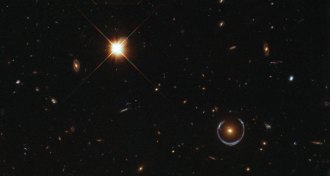 Astronomy
AstronomyUsing general relativity to magnify the cosmos
Astronomers have Einstein to thank for the tools that bring far-away galaxies and maybe even black hole collisions into view.
-
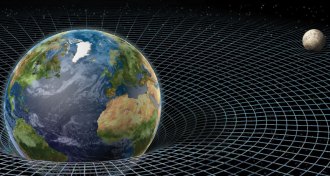 Astronomy
AstronomyEinstein’s genius changed science’s perception of gravity
Einstein struggled for years to solve the puzzle of general relativity. The pieces all fell into place in November 1915.
-
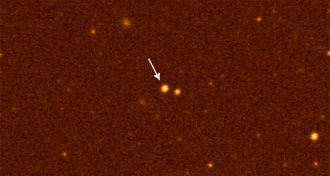 Astronomy
AstronomyFirst stars may lurk in our galactic neighborhood
Representatives from the first generation of stars might be hiding in our cosmic backyard, masked by interstellar pollution.
-
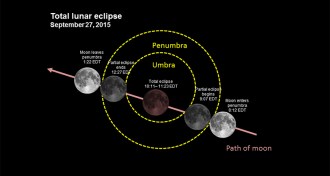 Astronomy
AstronomyThis weekend, lunar eclipse coincides with supermoon
On September 27, sky gazers will be treated to a rare type of total lunar eclipse.
-
 Astronomy
AstronomyBlack hole collisions evade detection
The environment in the centers of some galaxies might inhibit gravitational waves radiating from supermassive black holes, a new study suggests.
-
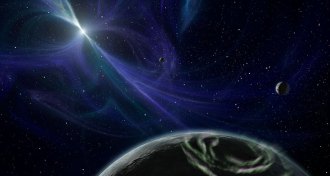 Astronomy
AstronomyFirst known exoplanets have few counterparts
The first known exoplanets were discovered around pulsars — probably one of the least likely places to have been found, astronomers now say.
-
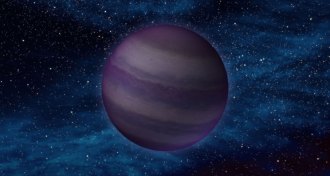 Astronomy
AstronomyTwo stars were once considered coldest known
Two stars once thought to be the coldest known are actually scorching compared with some truly frigid brown dwarfs.